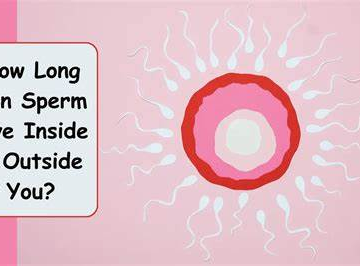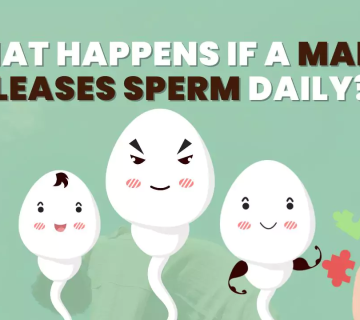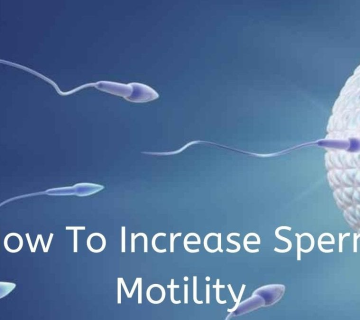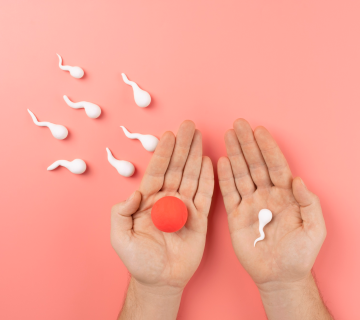
Does Weed Lower Sperm Count?
Marijuana (often called “weed”) is one of the most commonly used recreational substances in the world. However, many people wonder how it affects male fertility, especially sperm count. Some studies suggest that marijuana can lower sperm count, while others show different or inconclusive results. In this article, we’ll explore the latest research, discuss factors that impact fertility, and offer practical tips. We’ll keep it simple so you can walk away with a clear understanding of how weed might influence sperm health, without feeling overwhelmed by complex scientific language.
Why This Topic Matters
- Fertility Concerns: Whether you’re trying to start a family or just curious about your reproductive health, understanding how marijuana might affect sperm production is crucial.
- Growing Weed Use: As more states and countries legalize or decriminalize weed, more people have access to it. That means we need clear, evidence-based information to make informed decisions about consumption.
- Conflicting Information: A quick Google search will show you a wide range of opinions and findings. Some articles claim weed dramatically lowers sperm count, while others argue the impact is small or temporary. We’ll break it all down here in one comprehensive post.
(Disclaimer: The information in this article is for educational purposes and should not replace professional medical advice. If you have specific concerns about your health, please consult a qualified healthcare provider.)
Understanding Sperm Production
To appreciate how weed might influence sperm count, it helps to understand how sperm production works in the first place. Sperm is produced in the testes through a process called spermatogenesis. This process usually takes around 64 to 72 days to complete, and the body continuously produces new sperm. Here are some key factors:
Key Stages of Sperm Development
- Formation of Spermatogonia: These are the basic cells in the testes that start the sperm-making process.
- Maturation into Sperm Cells: Over several weeks, spermatogonia develop tails, forming mature sperm that can move.
- Ejaculation and Renewal: The body stores and then releases mature sperm during ejaculation. Afterward, the cycle continues, and new sperm keep forming.
Factors Influencing Sperm Health
- Hormones: Testosterone, follicle-stimulating hormone (FSH), and luteinizing hormone (LH) are crucial for proper sperm development.
- Temperature: The testes need to be slightly cooler than body temperature to make healthy sperm (that’s why they hang outside the body).
- Lifestyle and Diet: Exercise, nutrition, stress levels, and substance use (including marijuana) can impact both sperm count and quality.
Keeping these basics in mind will help us better understand the effects of marijuana on sperm count.
Cannabis and the Endocannabinoid System
To see how marijuana might affect sperm, you need a basic idea of how cannabis interacts with your body. When you use weed—be it through smoking, vaping, or edibles—you’re primarily introducing compounds like THC (tetrahydrocannabinol) and CBD (cannabidiol) into your system. These compounds work on your endocannabinoid system (ECS).
What Is the Endocannabinoid System?
The ECS is a network of receptors found throughout your body, including your brain, organs, and reproductive system. It helps maintain balance (homeostasis) in various bodily functions:
- Mood regulation
- Pain perception
- Appetite
- Immune response
- Fertility and hormonal balance
When THC binds to certain ECS receptors, it can alter hormone levels and possibly sperm development. Meanwhile, CBD interacts with these receptors in a different way and may have different effects on fertility.
Reproductive System Connection
Studies show that ECS receptors (known as CB1 and CB2) are present in the testes, sperm cells, and related tissues. When these receptors are activated or blocked, they might affect:
- Sperm Motility: How well sperm swim.
- Sperm Viability: How likely sperm are to survive.
- Hormone Production: Levels of testosterone and other hormones.
This is why some researchers suspect weed use could affect sperm count and overall fertility.
Scientific Evidence on Weed and Sperm Count
Historical Perspective: Older Studies
Years ago, some early research suggested that heavy marijuana use might reduce testosterone levels and slow down sperm production. For instance:
- 1970s and 1980s Research: Several studies found that men who smoked marijuana frequently had lower sperm counts and altered hormone levels compared to non-smokers. However, sample sizes were often small, and other lifestyle factors weren’t always controlled.
Modern Studies and Contradictory Findings
More recent research has produced mixed results:
- Harvard T.H. Chan School of Public Health (2019): In one study, men who had ever smoked marijuana actually had higher sperm counts than those who never tried it. However, the researchers cautioned this might be related to the body’s adaptation to occasional or moderate use, or other lifestyle differences.
- American Urological Association (2020): Some findings indicated that THC might negatively impact sperm quality in heavy or chronic users.
- Animal Studies: Some animal studies show a reduction in sperm production when high doses of THC are administered. Yet, animals aren’t humans, so results may not translate perfectly to people.
As you can see, research is still evolving. One reason for the contradictory results is that study conditions vary. Some participants are heavy users, others only consume occasionally, and many have different diets, exercise patterns, and stress levels that also affect fertility.
Key Takeaway
There’s still no universal agreement on exactly how much or how often you have to consume weed for your sperm count to be affected, or whether any changes are long-lasting. But overall, frequent and heavy marijuana use appears more likely to lower sperm count and disrupt healthy hormone levels.
Potential Mechanisms: How Weed Might Lower Sperm Count
Even though the research is mixed, there are a few proposed ways marijuana might lower sperm count in some individuals.
1. Hormonal Changes
- Testosterone Fluctuations: THC may alter the release of GnRH (gonadotropin-releasing hormone) in the brain, leading to changes in testosterone and other reproductive hormones.
- Estrogen-Like Effects: Some experts believe THC could have estrogen-like actions, which might reduce testosterone production over time.
2. Disruption in Spermatogenesis
Because cannabis compounds can bind to ECS receptors in the testes, they may interfere with the normal cycle of sperm development. This disruption can lead to fewer mature sperm or sperm with impaired motility.
3. Oxidative Stress
Some researchers suggest that chronic marijuana use might increase oxidative stress in the body. High oxidative stress can damage cells, including sperm cells, potentially lowering overall sperm count and quality.
4. Lifestyle Correlation
It’s also worth noting that people who use weed heavily may have other lifestyle habits (poor diet, less exercise, higher stress, or tobacco/alcohol use) that can impact fertility. So marijuana might not be the sole reason for lower sperm counts in those cases, but rather part of a bigger pattern of unhealthy choices.
Additional Factors That Impact Sperm Count
Beyond cannabis, many variables affect sperm count, motility, and overall fertility. Understanding these factors can help you see the bigger picture.
Frequency of Marijuana Use
- Occasional Use (less than once per week): May have less of an impact on sperm count, according to some research, though individual responses vary.
- Daily or Heavy Use: More likely to disrupt hormone levels and reduce sperm count, especially over a long period.
Method of Consumption
- Smoking: Involves inhaling not just THC but also potential toxins from burning plant material. This can compound the negative effects on overall health.
- Vaping: Reduces smoke exposure but still delivers THC, which may affect hormone levels.
- Edibles: No smoke involved, but edible products can deliver higher THC concentrations over a longer period, which may lead to stronger systemic effects.
Other Lifestyle Factors
- Diet: A balanced diet rich in antioxidants (fruits, vegetables, whole grains) supports sperm health.
- Exercise: Moderate, regular exercise helps maintain healthy hormone levels but excessive exercise or steroid use can harm fertility.
- Stress Levels: Chronic stress can lower sperm count through hormonal imbalances.
- Sleep: Poor sleep patterns disrupt hormone cycles, including those related to sperm production.
- Alcohol and Tobacco: Heavy alcohol use and smoking cigarettes can reduce sperm quality and count.
Common Questions People Ask
Many people have specific concerns about weed’s impact on fertility. Below are some of the most frequently asked questions, along with evidence-based answers.
Q1: Can occasional weed use really lower sperm count?
For most men, moderate or occasional weed use (like smoking once in a while) may not drastically affect sperm count, especially if you have no other risk factors. However, everyone’s body chemistry is different. Some people might be more sensitive and see changes even with light use.
Q2: Is the effect permanent?
Current evidence suggests that any marijuana-related drop in sperm count or motility might be temporary in many cases. It can take several weeks or months for sperm production to normalize after heavy use stops. The exact timeline differs among individuals, so it’s best to give your body at least 3 months of being weed-free if you’re trying to conceive.
Q3: Does weed affect testosterone levels in the long run?
Some studies show short-term drops in testosterone right after using weed, but the long-term picture is still unclear. Heavy and chronic use seems more likely to lead to significant hormonal disruptions than occasional use. Still, many men who smoke weed have normal testosterone levels.
Q4: Can weed affect IVF or fertility treatments?
Cannabis use can complicate fertility treatments like IVF (in vitro fertilization). While research is ongoing, some fertility clinics advise patients to avoid marijuana for at least a few months before undergoing treatments. That’s because healthy sperm is key to a successful IVF outcome.
Q5: Are there any benefits to using weed for fertility?
There is no strong evidence suggesting weed helps male fertility. Some studies look at CBD’s anti-inflammatory effects or stress reduction benefits, but these are not proven ways to boost sperm health. In fact, high-THC products are more frequently tied to negative sperm changes.
Real-World Experiences
Anecdotal Evidence
You might read personal stories from men who say they used marijuana heavily but still fathered children without issue. Conversely, some individuals share that after quitting weed, their fertility metrics improved. These conflicting anecdotes illustrate that cannabis affects people in different ways.
“My buddy smoked for years and had a baby with no problem. But my other friend had to quit weed for months before his wife got pregnant.”
Hearing different experiences can be confusing. That’s why it’s best to pay attention to your own body and, if necessary, consult professionals for medical testing and advice.
Advice from Healthcare Professionals
- Fertility Specialists: Often recommend limiting or avoiding cannabis if you’re trying to conceive.
- Urologists: May suggest sperm analysis to check your baseline and see if your weed use correlates with any abnormal findings.
- Counselors or Therapists: Can help if you’re using weed to cope with stress, anxiety, or pain, by offering alternative strategies.
Less-Discussed Topics
Many articles focus on the direct link between weed and sperm count but skip over other essential points. Below are some topics often overlooked.
1. Genetic Predispositions
Not everyone responds to weed the same way. Genetics can influence how your body metabolizes THC and regulates hormones. Some men might experience more pronounced hormonal changes than others, which could lead to greater decreases in sperm count.
2. Interactions with Prescription Medications
If you’re on medication for conditions like depression or anxiety, combining that with weed might compound hormonal or metabolic effects, indirectly affecting sperm production.
3. Environmental Toxins
Men who use weed might also be exposed to other environmental toxins (for instance, if they work in certain industries or live in heavily polluted areas). It’s possible the combined effect of these toxins and cannabis could lower sperm count more than weed alone.
4. Timing and Men’s Biological Clock
We often hear about the female biological clock, but men also have fertility changes as they age. If you’re in your late 30s or early 40s and trying to conceive, heavy weed use might have a bigger impact on your sperm count than it did in your 20s.
5. CBD vs. THC
- CBD (Cannabidiol): Generally considered less psychoactive and may have anti-inflammatory benefits. Limited research suggests it may not lower sperm count as much as THC.
- THC (Tetrahydrocannabinol): The main psychoactive compound in weed that’s often tied to changes in sperm production.
Because weed products vary in THC vs. CBD ratios, reading labels is crucial if you’re concerned about fertility.
Practical Tips to Protect or Improve Fertility
If you’re worried about how weed might affect your sperm count, here are some steps you can take. Not all tips will apply to everyone, but they can help you reduce potential risks and optimize fertility.
1. Consider Cutting Back or Taking a Break
- Lighten Your Usage: If you’re a heavy user, try reducing the frequency of use.
- Take a Tolerance Break: Give your body a break from THC for at least a few months if you’re trying to conceive.
2. Make Healthier Lifestyle Choices
- ✔️ Do:
- Eat a balanced diet rich in vitamins and antioxidants.
- Exercise regularly (but not excessively).
- Aim for 7-9 hours of sleep each night.
- ❌ Don’t:
- Binge drink or smoke cigarettes.
- Rely heavily on processed foods.
- Neglect stress management.
3. Get a Sperm Analysis
If you’re concerned about fertility, a sperm analysis can give you concrete data. This medical test measures:
| Parameter | What It Measures |
|---|---|
| Sperm Count | How many sperm are present in a sample |
| Motility | How well they move (swimming ability) |
| Morphology | Shape and structure of the sperm |
This test can provide a baseline to see if your sperm health is below average, average, or above average. If you do reduce or stop weed use, you can test again in a few months to see if things have improved.
4. Consult a Healthcare Professional
- Urologist or Fertility Doctor: Can offer specialized tests and guidelines.
- Nutritionist or Dietitian: Can help you build a fertility-friendly eating plan.
- Behavioral Health Expert: Can provide tools to help reduce or manage weed use if it’s become a habit you rely on.
5. Track Your Progress
It can be motivating to keep track of lifestyle changes and see how they might be affecting your health. For instance:
- Journal Your Usage: Note how often and how much cannabis you use.
- Monitor Health Markers: Record any changes in weight, mood, or stress levels.
- Retest Sperm Analysis: After a set period, see if there’s improvement.
Possible Benefits of Moderation
While there’s no proven fertility “benefit” to smoking weed, cutting back might come with some indirect advantages:
- Better Overall Health: Many people who reduce or quit weed notice they sleep better and have more consistent energy levels.
- Reduced Stress on the Lungs: Lower exposure to smoke and tar (if you’re smoking rather than using edibles).
- Less Anxiety for Some Users: While many report weed helps them relax, others experience heightened anxiety, especially with higher THC products.
Quick Checklist: When to Seek Professional Help
- Difficulty Conceiving for 6-12 Months: If you and your partner haven’t been able to conceive within a year (or 6 months if you’re over 35), consider seeing a fertility specialist.
- Low Sperm Count on a Lab Test: A healthcare provider can help you figure out if weed or another factor is the cause.
- Chronic Marijuana Use: If you find it hard to cut down or quit, a counselor or addiction specialist might be beneficial.
- Other Health Issues: Diabetes, thyroid problems, or obesity can also impact fertility. If you have these conditions, talk to a doctor about weed use and overall health management.
A Deeper Look at Recent Research
Newer, larger-scale studies are beginning to explore the link between weed and sperm count more thoroughly. Here are a few highlights you might not see in shorter articles:
- Endocannabinoid System and Gene Expression: Scientists are studying how THC interacts at the molecular level, potentially altering gene expression in sperm cells.
- CBD-Specific Research: Trials are underway to see if CBD alone has fewer fertility impacts than THC. Some data suggests it might, but nothing is conclusive yet.
- Long-Term Epidemiological Studies: Future projects aim to follow men over several years to see how their sperm count changes with consistent weed use or changes in usage habits.
Keep an eye out for updates, as this is an evolving field that gains more attention as weed becomes legalized in more places.
Steps to Improve Sperm Health: A Practical Guide
If you’re trying to conceive or just want to maintain healthy sperm, consider these step-by-step guidelines:
-
Evaluate Your Usage:
- Track how often and how much you use weed each week.
- Reflect on whether it’s recreational or for medical reasons.
-
Gradually Reduce Consumption (if you decide to cut down):
- Replace daily habits (like a nighttime smoke) with healthier alternatives (such as light exercise, herbal tea, or reading).
- Seek professional help if you’re finding it difficult to cut back.
-
Adopt a Fertility-Friendly Lifestyle:
- Nutrition: Focus on lean proteins, whole grains, fruits, and vegetables.
- Vitamins: Some studies suggest supplements like zinc or folic acid might support sperm production.
- Exercise: Aim for 30 minutes of moderate activity most days.
- Avoid Excess Heat: Steer clear of hot tubs or tight underwear that can raise scrotal temperature.
-
Monitor Progress:
- Schedule a sperm analysis to see where you stand.
- After making changes for about 3 months (the general sperm production cycle), test again.
-
Adjust Based on Results:
- If your sperm count remains low, consult a fertility expert for a more thorough evaluation.
- Continue to refine your lifestyle and weed usage habits as needed.
Practical Pros and Cons Table for Weed Use and Fertility
Below is a simplified table listing some possible pros and cons of marijuana use in relation to fertility. (Remember, these “pros” are not direct fertility benefits but more about the general effects people often associate with weed.)
| Aspect | Pros (Reported by Some Users) | Cons (Potentially Affecting Fertility) |
|---|---|---|
| Relaxation | Helps reduce stress and anxiety | May reduce motivation to exercise or eat well |
| Pain Management | Can relieve chronic pain for some | Risk of tolerance and dependence over time |
| Hormonal Impact | Some users report little to no negative effect | Heavy use may disrupt testosterone and other hormones |
| Sleep | Some find it easier to fall asleep | Over-reliance might affect sleep quality in the long run |
| Sperm Production | Occasional use may not cause significant harm | Chronic, heavy use might lower sperm count and motility |
Final Thoughts on Weed and Sperm Count
Current research indicates that heavy, long-term weed use could have a negative impact on sperm production and overall male fertility. However, occasional or moderate use may not have the same drastic effects for everyone. Your genetics, lifestyle, and general health habits all matter.
Still, because sperm production takes a couple of months to reset, if you’re trying to conceive, many healthcare providers recommend cutting back or quitting weed to give yourself the best chance for healthy sperm. While more studies are needed for a definitive answer, it’s wise to be cautious and control what you can—like substance use, diet, and exercise—to protect your reproductive health.
We Want to Hear From You!
- Have you or someone you know experienced changes in fertility linked to weed use? Share your thoughts or personal experiences in the comments section.
- Did you find any specific strategies helpful while cutting back on cannabis to improve fertility? Let us know so others can benefit from your tips.
- Got questions we didn’t answer? Drop them below, and we’ll do our best to provide more information or point you in the right direction.
(Remember, this article is for informational purposes only and is not a substitute for professional medical advice. Always consult a qualified healthcare professional for personalized guidance.)




No comment